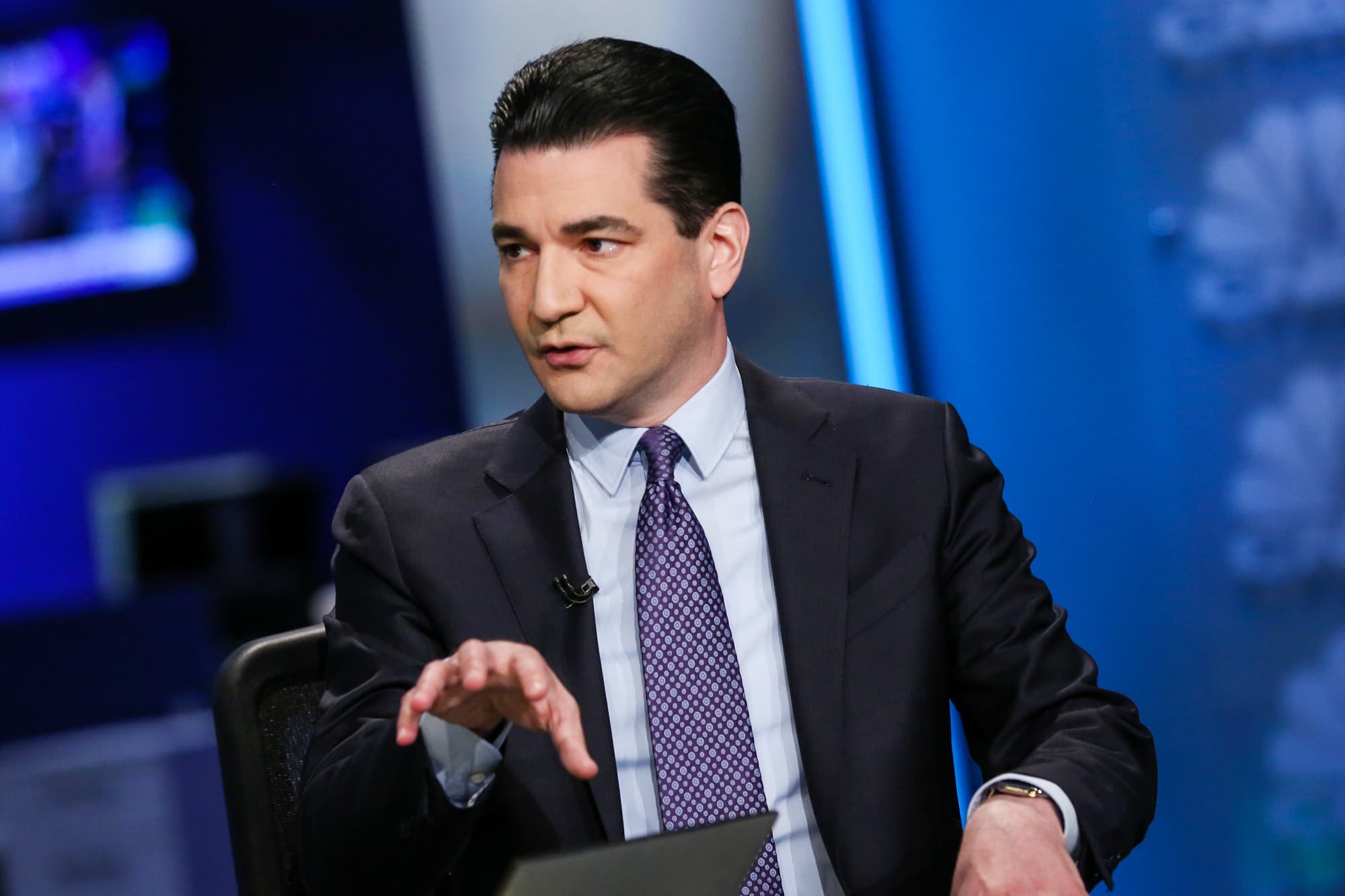Gottlieb says breakthrough Covid infections more common than people realize due to weak monitoring

Scott Gottlieb, former Commissioner of the FDA
Adam Jeffery | CNBC
Anyone who received a Covid vaccine in the earliest stages of the rollout should register for their booster shots because “there’s probably more infection happening among the vaccinated population” than the U.S. is currently monitoring, Pfizer board member Dr. Scott Gottlieb told CNBC’s “Squawk Box” on Monday.
The effectiveness of Covid vaccines is proven to diminish over time, and Gottlieb said breakthrough infections are likely to occur in individuals almost a year removed from becoming fully immunized. But boosters offer an “almost immediate” effect of restoring the antibody protection offered by vaccines to their original levels, the former Food and Drug Administration commissioner noted.
“There’s probably more infection happening among the vaccinated population, more spread happening in that population, the unboosted portion of that population, than what we’re picking up because we’re just not systematically tracking this,” Gottlieb said. “There’s going to be retrospective studies that identify this, but we’re not doing a good job of tracking this in real time. And this is the argument for people to go out and get boosters.”
Gottlieb urged vaccinated Americans to get boosted before gathering for Thanksgiving, advising that those who receive an extra dose in the days ahead could still “have substantially more protection” in time for the holiday. He called on parents to bring unvaccinated kids for their shots before the holidays as well, adding that children gain a greater shield against Covid from their first dose than adults.
The Centers for Disease Control and Prevention cleared the way on Friday for all U.S. adults inoculated with Pfizer or Moderna’s two-dose Covid vaccines to get boosted at least six months after receiving their second shot. The agency previously approved boosters for any Johnson & Johnson vaccine recipient ages 18 and older, though they’re eligible two months after getting the one-dose Covid shot.
Gottlieb’s comments come as the U.S. reports a rise in Covid cases following weeks of declines and a nearly three-week plateau that started in late October and saw cases level off between 70,000 and 75,000 per day. The country’s seven-day new case average reached almost 92,400 on Sunday, up 16% from a week ago, according to a CNBC analysis of data from Johns Hopkins University.
Covid cases were also up 6% globally as of the week ended Nov. 14, the World Health Organization reported in its most recent weekly epidemiological update. Europe recorded more than 2.1 million new cases over that week, representing some 64% of the total cases worldwide, the WHO measured.
Germany reported a seven-day average of over 49,200 new cases on Sunday, almost a 31% increase from the week prior, Hopkins found. Pockets of inadequate vaccination rates and a lower degree of prior infection than the U.S. are helping to fuel Germany’s surge of the highly transmissible delta variant, Gottlieb said.
“When you look at the total immunity in the German population, it probably is lower than in the U.S.,” Gottlieb said. “I’m not saying that we’re impervious to spread here – we’ve certainly seen dense outbreaks of delta in specific parts of this country.”
“But I think we’re in a certain different situation than Germany right now because we’ve endured a lot of prior waves of infection, and Germany has controlled the infection to a better extent in the prior waves,” he continued. “Now, the delta strain is getting out of control there.”
German Chancellor Angela Merkel has called for the country’s 16 states to implement tough steps to control the spread by Wednesday, telling members of conservative party that the current measures are insufficient. Germany has already limited public life in areas where hospitals are becoming full.
Austria, Germany’s neighbor to the south, imposed a full lockdown on Monday and is implementing a nationwide vaccine mandate starting Feb. 1.




